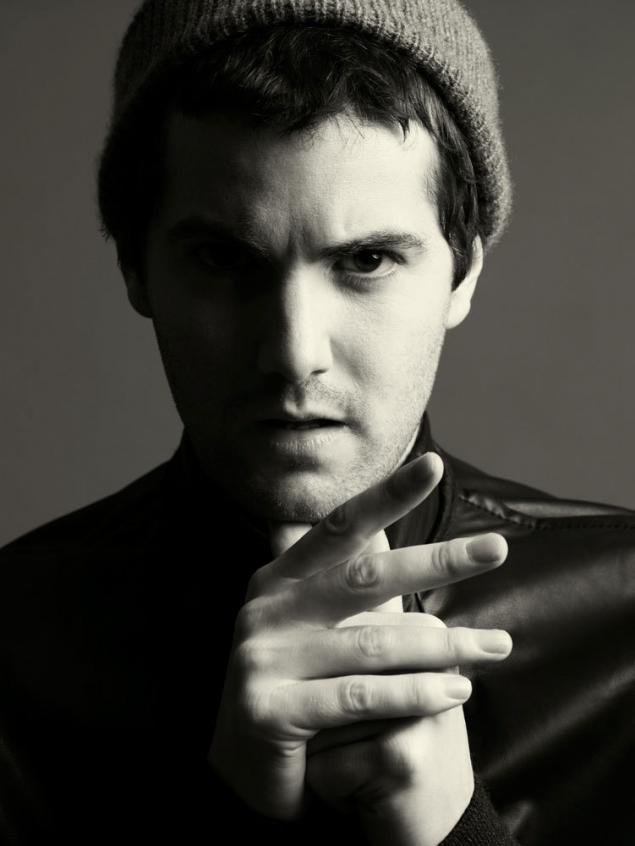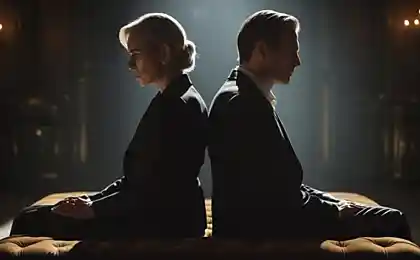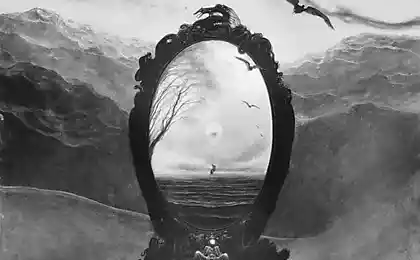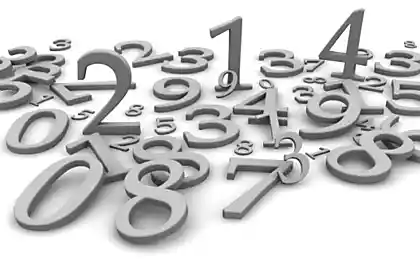634
Disappointment: see partner without their fantasies
When I experienced a disappointment in a particular person, then some time later I had to admit — I too much was expected of him.
I waited for more maturity, more maturity, waiting for the presence of any qualities that were not there originally.

When I was amazed, wondered if the other person did something that I did not expect, I later understood – was underestimated. Considered incapable.
In the first case, I was given the Other properties desirable for a parent that I could respect. It certainly was not.
In the second case, the Other was a projection of my actual experience — relations with the parent weak, irresponsible, incapable.
In the first case, there was still hope, while the second distrust.
But neither in any of the options I couldn't see what really is, and make your choice.
...... Disappointment can lead to breakage of relationship, and try to resume the search for a new ideal. It also could give a boost to attempts to influence, changing what is to what you want.
Frustrated may refuse to admit their disappointment, continuing to insist on its idealization. Here are common ways to convince yourself:"I want too much", "I blame myself", "it should be"
To convince yourself easily, if not a disappointment.
This phase — a phase a meeting with reality in the relationship is to survive, it is extremely difficult, if not in the habit of taking responsibility for their expectations, if there is a hope to get the same perfect parent.
...I know people who've spent years redoing their partners in marriage, or, being disappointed, changing one to the other, and also years forward – when the Other will come to their senses and do become the right parent. Instead of confronting their illusions.
Disappointment means that he(a) doesn't do what I thought and wanted for myself.
In this moment of frustration, there is a chance to understand themselves, and to see the partner, without their fantasies about him.

The frustration becomes a critical moment in the relationship – when you have the chance to meet with yourself and with your partner – not fictional, real.
And to make a real choice – not to escape, not to force... to Make a choice — we can be together now. At this point in time.
Author: Veronica Brown
P. S. And remember, just changing your mind - together we change the world! © econet
Source: veronikahlebova.livejournal.com/32060.html
I waited for more maturity, more maturity, waiting for the presence of any qualities that were not there originally.

When I was amazed, wondered if the other person did something that I did not expect, I later understood – was underestimated. Considered incapable.
In the first case, I was given the Other properties desirable for a parent that I could respect. It certainly was not.
In the second case, the Other was a projection of my actual experience — relations with the parent weak, irresponsible, incapable.
In the first case, there was still hope, while the second distrust.
But neither in any of the options I couldn't see what really is, and make your choice.
...... Disappointment can lead to breakage of relationship, and try to resume the search for a new ideal. It also could give a boost to attempts to influence, changing what is to what you want.
Frustrated may refuse to admit their disappointment, continuing to insist on its idealization. Here are common ways to convince yourself:"I want too much", "I blame myself", "it should be"
To convince yourself easily, if not a disappointment.
This phase — a phase a meeting with reality in the relationship is to survive, it is extremely difficult, if not in the habit of taking responsibility for their expectations, if there is a hope to get the same perfect parent.
...I know people who've spent years redoing their partners in marriage, or, being disappointed, changing one to the other, and also years forward – when the Other will come to their senses and do become the right parent. Instead of confronting their illusions.
Disappointment means that he(a) doesn't do what I thought and wanted for myself.
In this moment of frustration, there is a chance to understand themselves, and to see the partner, without their fantasies about him.
- What did I want? Why I wanted to he(a) satisfied(a) my... need?
- Can I help other people and I(a)? And if I think I have only he – what injury I'm stuck(a)?
- What is actually capable of my partner? What qualities are needed to me, he has in himself?
- Do I know how to appreciate what he gives me? Can I show my gratitude?
- I have and had a resource to show their pain, their vulnerability? Can he and I to discuss the difficulties in the relationship, not blaming?

The frustration becomes a critical moment in the relationship – when you have the chance to meet with yourself and with your partner – not fictional, real.
And to make a real choice – not to escape, not to force... to Make a choice — we can be together now. At this point in time.
Author: Veronica Brown
P. S. And remember, just changing your mind - together we change the world! © econet
Source: veronikahlebova.livejournal.com/32060.html























